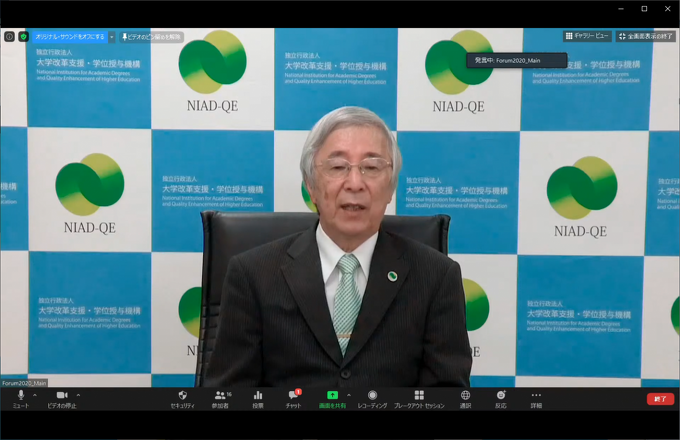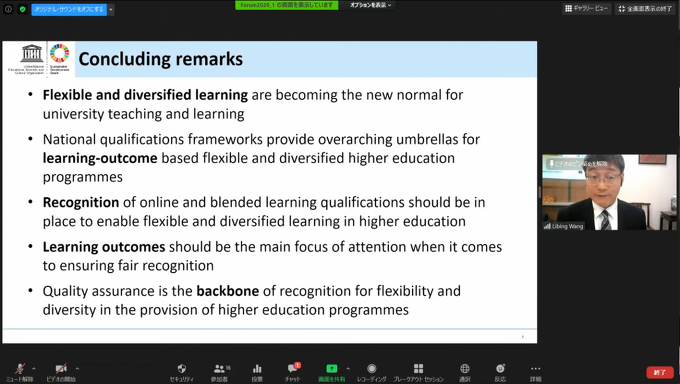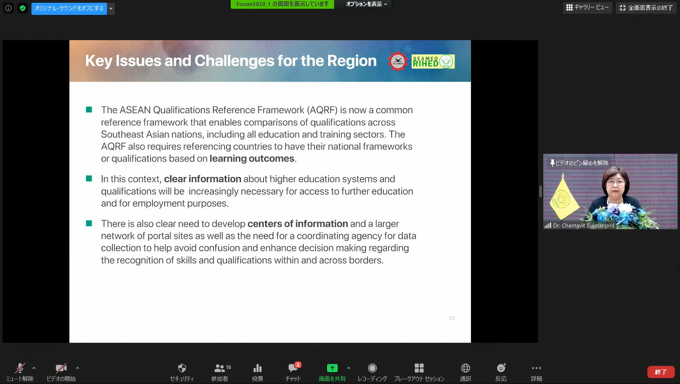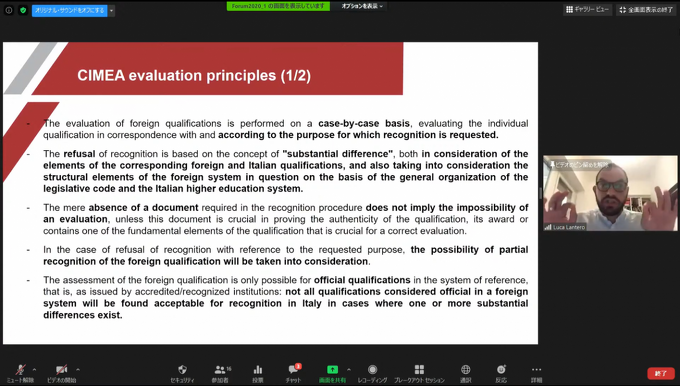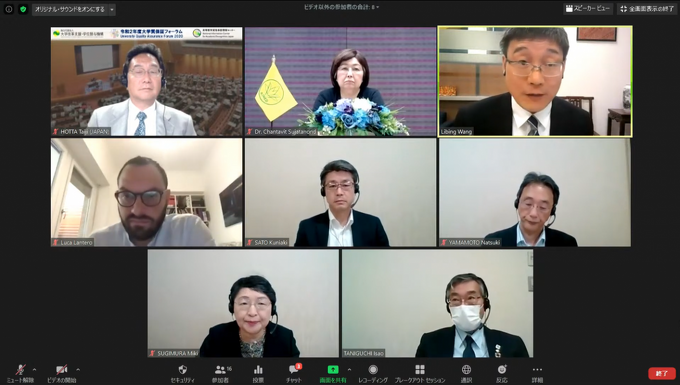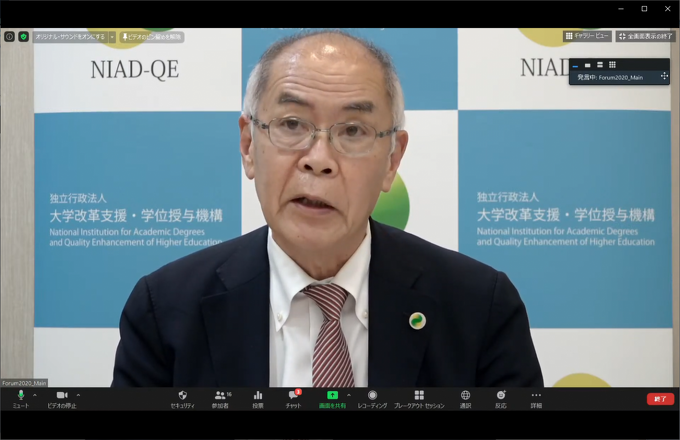Event: NIAD-QE University Quality Assurance Forum 2020

University Quality Assurance Forum 2020
The Tokyo Convention and Diversified Learning -Transition Phase in Recognition of Qualifications
![]()
Wednesday, 23rd September
15:30 - 17:30 JST (6:30-8:30 GMT)
![]()
Join ONLINE
![]()
Organizer:
National Institution for Academic Degrees and Quality Enhancement in Higher Education (NIAD-QE)
![]()
Supporting Organizations:
Asia-Pacific Quality Network (APQN)
Japan Association for College Accreditation (JACA)
Japan Association for Quality of University Education (JAQUE)
Japan Institution for Higher Education Evaluation (JIHEE)
Japan Network of Certified Evaluation and Accreditation Agencies (JNCEAA)
Japan University Accreditation Association (JUAA)
Overview
In February 2018, the UNESCO Asia-Pacific Regional Convention on the Recognition of Qualifications in Higher Education (known as the Tokyo Convention) entered into force with the aim of facilitating international mobility of students and academics. In November 2019, Global Convention on Recognition of Qualifications concerning Higher Education (known as the Global Convention) was adopted by the UNESCO 40th session of the General Conference. In Japan, National Information Center for Academic Recognition Japan was established at National Institution for Academic Degrees and Quality Enhancement of Higher Education (NIAD-QE) as the official National Information Center (NIC) of Japan in September 2019.
While global trends in education has taken a turn to become multifaceted, the Tokyo Convention states that foreign qualifications should be assessed “with the main focus on knowledge and skills achieved”. It requires the State Parties to recognize prior learning and qualifications based on not only inputs, such as program length and hours of study, as has been in the past, but also on outcomes that provide insight into “experience, knowledge, skills, attitudes and competencies” that a qualification holder has acquired as a result of education. This has led to the global development of various initiatives on outcome-based recognition, including qualifications frameworks, competency-based education, micro-credentials, digitalization of certificates, and diploma supplement.
The Forum invites experts from overseas to share insights on the principles behind the Tokyo Convention as well as the Global Convention, explore cases and issues in recognition of qualifications in light of differences in education systems, and deepen our understanding of the roles of NICs. In addition, experts in Japan will introduce some of the changes made to higher education regulations in response to the Tokyo Convention, assessment of global human resources in the industry sector, and expectations and challenges in qualifications recognition in higher education. There will also be a discussion on how Japan should respond to the accelerating international development related to qualifications recognition in the post-COVID19 in which the importance of flexibility to adapt Volatility, Uncertainty, Complexity, and Ambiguity of environment has become more explicit.
Agenda & Materials
*Presentation materials may include provisional translations.
| 15:30 | Opening Address |
| 15:35 | Steps to Joining Our Interactive Online Polls |
| 15:45 | Keynote Speech I Supporting Flexible and Diversified Learning in Higher Education with Quality Assurance and Recognition |
| 15:55 | Keynote Speech II Issues and Challenges in the Recognition of Qualifications in Southeast Asia |
| 16:05 | Keynote Speech III It's a Recognition World |
| 16:15 | Panel Discussion Part I "Introduction on Panelists and their Issues" The Turning Period of Internationalization of HE and Educational Exchange The University Quality Assurance Forum - Sharing Issues at Panel Discussion Significances and Challenges in Collaboration for Quality Assurance from a University's Perspective What is KOSEN (KOSEN is KOSEN) Part II "Summary Discussion" Moderator HOTTA Taiji:Professor, Research Department, NIAD-QE and Executive Director, National Information Center for Academic Recognition Japan) |
| 17:25 | Closing Remarks |
| 17:30 | End of Forum |
Registration
The forum has ended.Thank you for your attendance and participation.
Secretariat
(within E.C.International, Inc.)

